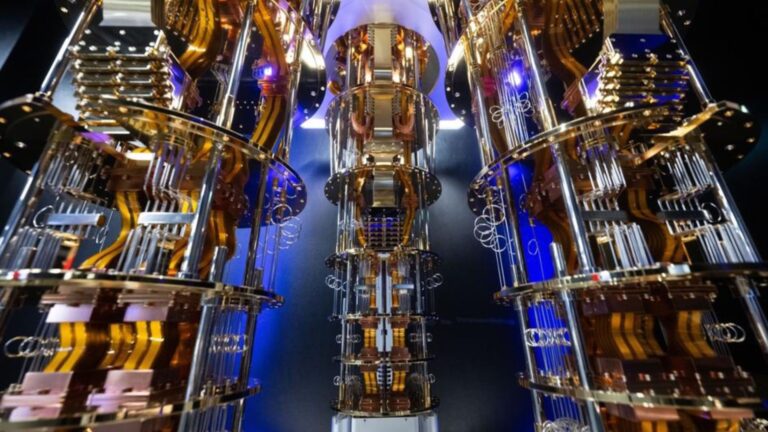
British quantum computing company Quantum Motion has achieved a landmark breakthrough by delivering the world’s first full-stack quantum computer built entirely with standard semiconductor manufacturing processes. Announced today, the system now operational at the UK’s National Quantum Computing Centre (NQCC) in Oxfordshire represents what CEO James Palles-Dimmock calls quantum computing’s “silicon moment”—a pivotal shift that could accelerate the technology’s journey from laboratory curiosities to mass-produced machines (UK Tech News; Yahoo Finance).
Scaling Quantum Technology Through Silicon
The breakthrough addresses one of quantum computing’s most pressing challenges: scalability. Traditional quantum systems built with superconducting circuits or trapped ions require custom fabrication processes that limit production volumes and drive up costs. Quantum Motion’s silicon spin-qubit architecture operates using conventional transistor technology, requiring only minor modifications to standard 300mm CMOS manufacturing processes—the same technology used to produce billions of smartphone and computer chips (Data Center Dynamics).
“Today’s announcement demonstrates you can build a robust, functional quantum computer using the world’s most scalable technology, with the ability to be mass-produced,” said Palles-Dimmock. The quantum processing unit integrates seamlessly with industry software frameworks including Qiskit and Cirq, housed within a compact footprint of just three server racks that fits standard data-center environments (Quantum Zeitgeist).
Commercial Viability Comes Into Focus
The system’s architecture centers on a scalable tile design that integrates compute, readout, and control elements into dense arrays that can be repeatedly printed onto chips. This modular approach enables future expansion to millions of qubits per processor while supporting easy upgrades through next-generation quantum processing units. The timing coincides with growing momentum across the quantum computing sector, with global investments exceeding $1 billion in 2024 and continuing at record levels into 2025.
Hugo Saleh, formerly director of product management at Google and now Quantum Motion’s president and chief commercial officer, stated: “With the delivery of this system, Quantum Motion is on track to bringing commercially useful quantum computers to market this decade.” The company, which has raised approximately £50 million since its founding in 2017, projects quantum computing to become a market exceeding $100 billion as the technology transitions from research to practical applications (Morningstar).
The UK government has backed the development through its National Quantum Computing Centre testbed program, investing £30 million to establish seven different quantum computing platforms by 2025. Dr. Michael Cuthbert, director of the NQCC, emphasized the significance: “The successful installation of Quantum Motion’s system marks an important step forward in the NQCC’s quantum computing testbeds initiative,” as the facility now hosts systems from seven companies representing different technological approaches for direct architectural comparison as they mature toward practical deployment.












